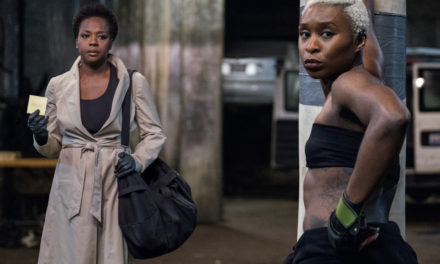War is hell, and sometimes the demons follow you home. This is the message of Jason Hall’s directorial debut, “Thank You for Your Service.” The film, starring Miles Teller (“Whiplash,” “Divergent”), is based on David Finkel’s novel of the same name, which tells the true story of Army veteran sergeant Adam Schumann, who returns home from Iraq in 2007 only to face another deadly challenge in the form of PTSD.
“Thank You for Your Service” follows the story of three soldiers who return home to the United States from Iraq and their struggles with posttraumatic stress disorder (PTSD). In a roundtable interview with The Emory Wheel and two other college newspapers, Hall said that he hoped to convey the stories of the soldiers who grapple with readjusting to civilian life.
“Of course there are guys who come home and they don’t have [these difficulties], and they step back into their lives and they go get a job at the lumber yard and have three kids and become a football coach and it’s all good,” Hall said. “But there’s a portion of that population that doesn’t have that experience, and I wanted to tell the story of that portion.”
The Wheel interviewed Hall alongside Teller and Schumann on Oct. 5 to discuss the team’s preparation and planning for the film, the challenges faced by real-life veterans and more. “Thank You for Your Service” hits theatres Oct. 27.
This transcript has been edited for clarity and length.
Maddie Bruning, Technique: How did you reconcile how personal and individual war is while attempting to create a film that helps provide insight for the trauma all veterans go through?
Jason Hall: It’s my belief that if you make something super personal it becomes universal because the more personal it is, the more human it is. [The film] was about trying to get to the core of Adam’s experience and trying to tap into who this guy really was.
We’re telling the story of three veterans coming home. I looked at that as almost one person, one soldier, making three different decisions. It’s like the soldier gets off the plane and he comes to a fork in the road. These circumstances present options and the soldier makes this decision and goes that way. These guys kind of separate and make three different decisions that in my mind encapsulate some of the experiences that these guys go through when they come home, the guys who are suffering.
Alison Bolt, The Connector: Miles, what was your biggest challenge in preparing for and filming this movie?
Miles Teller: The occupation, the profession. I feel like, for any other movie I’ve done, there’s a way to get some firsthand experience with that.
Nobody can just tell you about war. Nobody can tell you about being a staff sergeant in the military. You can kind of get it, but we were lucky because they ran us through a boot camp with some highly trained professional badasses who didn’t take it easy on us and kind of beat that military training into us. It was weird. From that point on, we’d be checking our own uniforms and get pissed if we missed something.
We just felt that we had learned some stuff that we were taking a lot of pride in, knowing that we represent guys that paid the ultimate sacrifice to wear that uniform or knew somebody who had. So we were taking it very seriously.
Jesse Weiner, The Emory Wheel: Miles, when you were 20, you were nearly killed in a car accident. Do you think that your own near-death experience helped you better understand the experience of these soldiers?
MT: Yeah, I do. I think that’s what these guys are dealing with, trying to reckon with immense trauma, things that no person should ever see or be witness to, and these guys are facing those images every day. I think that’s really what actors are; it’s all point of view. So I was cast, and another actor would have related to it in a different way. I guess, in a way, I was fortunate that I had some real life stuff [happen to me] that I didn’t have to imagine. [I’ve] lost some buddies in my life and [saw] one buddy on life support with all this sh*t shoved down his throat and his brother just walking down the hall screaming, “That’s my brother! That’s my brother!” So yes, I definitely had some stuff to pull on. Then other stuff nobody could relate to, unless you’ve been to war. So you kind of fill in the blanks.
Technique: In trying to help veterans, is it better to discuss the trauma rather than to avoid it or does bringing up the past rehash all of that pain and suffering?
Adam Schumann: That’s actually both of the answers. Bringing it up does cause pain, but you have to bring it up. You have to talk about it. You can’t hold that burden forever because it’s just going to stew in you. It’s going to fester, like an abscessed tooth. It’s just going to get worse and worse; it’s going to eat at you. It’s a ton of weight to carry around, and you have to get it off. [You’ve] got to unload it, and you have to find someone to unload it on that’s willing to bear a little bit of that burden for you.
The Connector: How do you want the audience to feel after watching this movie?
JH: Hopefully, this [film] takes a swing at people and hits them in the mouth. Not for the sake of being exciting or thrilling. This is a real issue. There are 2.5 million veterans walking around who have come home from these wars. They’re walking by you on the street, and they’ve had experiences like this, and whether they have any kind of trauma or not, these things still resonate … inside of them. These people are passing you on the street corner. They’re in your classrooms. They’re on the bus with you.
And we have no idea what these people have been through. They slip back into society. They put on civilian clothes, and these heroes walking among us have been through extraordinary hardships, trials and tribulations. They’ve lost people they love and they’ve sacrificed things we have no idea about. As a civilian population, we have to know what the cost of war is because we are a country that enters into conflicts. If we’re going to enter into conflicts, number one, we need to know how to bring these guys home better, and number two, these are brave men with honor. We need to make sure that the conflicts we enter are as honorable as the men we send over.
Associate Editor | jweine8@emory.edu | Jesse Weiner (21C) is from Ambler, Pennsylvania, and plans to major in business and history. In addition to the Wheel, he is a trip leader for Outdoor Emory and the housing chair for Delta Tau Delta fraternity. He spends his free time watching movies and debating their merits with the Wheel's film critic, cheering on the Miami Marlins and updating his country music playlist.





